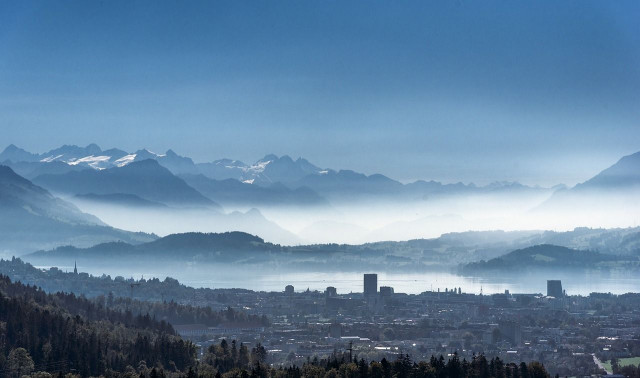In-Country Migration of Young People – a Contrast between Georgia and Switzerland
Written by Christoph Hueppi, Mariam Kharshiladze, Balina Nodia & Noa Sargenti
A collaboration between students from Tbilisi State University and the University of Zurich
What are the reasons that people migrate? People might migrate because they are forced to because of a war or they must due to climate change. Even in countries like Georgia and Switzerland migration is a serious topic although you wouldn't expect it at first. It is mainly internal migration from mountains regions due to difficulties for young people to build a livelihood. The reason for the migration might not be that drastic but the consequences are yet to unfold.
Brain drain is a phenomenon that many Swiss Cantons experience. It describes the process when young people emigrate from their home Canton for educational reasons and eventually do not return anymore (Kälin, 2019). This is due to several reasons. As it is obvious that not every Canton can have its own university, young people are sometimes forced to move house. And that creates a certain centrality which together with a broader (cultural) infrastructure attracts more young students (Rérat, 2011; Kälin, 2019). These dynamics in migration processes thus have several impacts. A financial effect is that the Cantons must pay money for their students studying in another Cantons. But even worse is the fact that with young people who do not return to their home Cantons, a loss of potential goes hand in hand. This often affects mountainous Cantons such as Uri or Glarus. And with that they not only lose taxpayers, but they also lose innovative people (Kälin, 2019).
Racha Municipality in Georgia struggles with unemployment from the Soviet collapse and economic transition (Kohler et al., 2017). Harsh winters and rugged terrain further hinder agriculture and economic growth. These are not good perspectives for young people. The number of young people in Racha municipality is decreasing. As recently in 2015, it was over 65% (Kohler et al., 2017). These factors have contributed to a declining population, with low birth rates and a significant outflow of young people. Many migrate abroad or move to urban centers like Tbilisi in search of education and better opportunities, as the region offers limited prospects. Recent statistics show a sharp rise in migration from Georgia, further impacting Racha's demographic crisis (Civil.ge, 2024) Despite these challenges, Racha's nature holds potential for growth, particularly through tourism. Recent efforts to develop mountainous regions focus on nature for economic development. If sustained, these initiatives could help mitigate migration and revitalize the local economy, offering hope for Racha's future development.
Georgia and Switzerland both have migration from mountains regions into the urbanized lowlands. However, the reasons are different. In Georgia, they must deal with structural and economic difficulties from the Soviet era which hinders the development of the regions and therefore gives little perspective for young people to stay there. In Switzerland, young people must migrate to get a higher education and will most likely stay there longer because of their jobs afterwards which leads to a loss of innovation in the mountain regions. But there are efforts to make the mountain regions more attractive to young people to combat migration by creating economic prospects, especially in the tourism sector. Because nature is the greatest asset of these regions.
Bibliography
Civil.ge (2024) Geostat: Emigration from Georgia Nearly Doubled in 2023, Civil Georgia. Available at: https://civil.ge/archives/601581 (Accessed: 30 November 2024).
Kälin, K. (2019) Akademiker wandern aus: Diese Kantone kämpfen gegen «Braindrain», watson.ch. Available at: https://www.watson.ch/!783459480 (Accessed: 25 November 2024).
Kohler, T.; Elizbarashvili, E.; Meladze, G.; Svanadze, D. & Meessen, H. (2017) 'The Demogeographic Crisis in Racha, Georgia: Depopulation in the Central Caucasus Mountains', Mountain Research and Development, 37(4), pp. 415–424.
Rérat, P. (2012) 'The New Demographic Growth of Cities: The Case of Reurbanisation in Switzerland', Urban Studies, 49(5), pp. 1107–1125. Available at: https://doi.org/10.1177/0042098011408935.
Comments
By accepting you will be accessing a service provided by a third-party external to https://www.mountainapp.net/
This website uses no external trackers, no analytics, just session cookies and values your online privacy.



